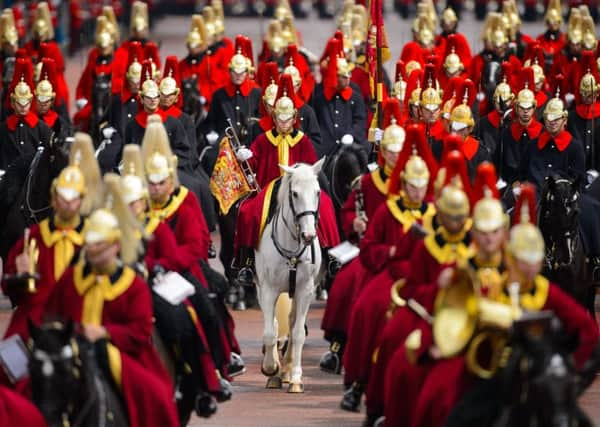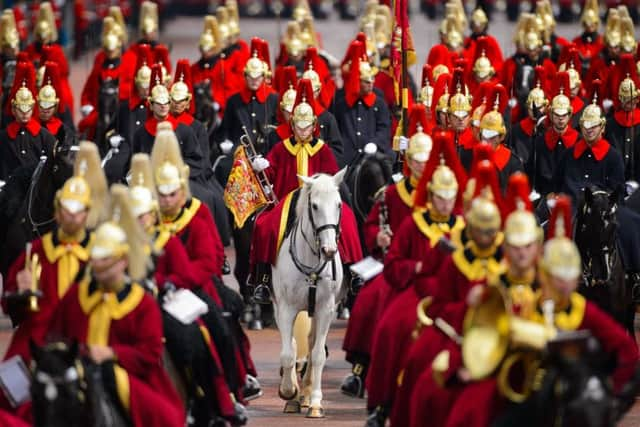Joyce McMillan: Is Scotland the real '˜vassal' state?


This week a House of Commons’ committtee published a report on devolution, and the impact on it of Britain’s withdrawal from the EU.
The Public Administration and Constitutional Affairs Committee’s findings are complex, and contain some interesting observations on the under-representation of the regions of England in discussions on the UK’s constitutional future.
Advertisement
Hide AdAdvertisement
Hide AdFrom a Scottish perspective, though, the most striking of its conclusions is that 20 years on from the passing of the Scotland Act 1998, which set up the Scottish Parliament, and the parallel legislation for Wales, there has still been no systematic review of Whitehall structures and procedures to take account of devolution; and that most officials have yet to receive “comprehensive training on devolution”.


The committee also invited the UK Government to make clear that it understands what the “reserved powers” model of devolution means – that is, that all powers not specifically retained by Westminster are automatically devolved; and asked that the Government clarify its ambiguous position on the Sewel Convention, which “normally” forbids Westminster from legislating on devolved matters without the consent of the Scottish Parliament.
What the committee’s report reveals, in other words, is that Britain’s unwritten constitution – famous for its pragmatic muddling along – is being put under unprecedented strain by the shock of Brexit. Essentially, in its EU Withdrawal Bill, the British Government has sought to deal with Brexit by reclaiming dozens of powers which were once exercised at EU level, and administered by the devolved governments; and has sought to deal with the the fact that many of those powers are in devolved areas by simply ignoring or amending the devolution legislation, and hanging on to them, at least for the time being.
And given that some of those powers are in vital areas such as environmental protection, food safety, and public service procurement, the devolved administrations understandably fear that they may never get them back. After all, if a post-Brexit, right-wing government at Westminster finds that its only chance of a trade deal with Donald Trump lies in flogging off the NHS to American private healthcare corporations, and opening up British markets to cheap, low-standard American food, it is hardly going to hand back to the Scottish Government the vital power to block those deals.
At a stroke, in other words, the EU Withdrawal Bill has left whole areas of Scottish domestic policy at the mercy of Westminster governments whose policies in these areas lack popular support in Scotland, and are actively opposed by the Scottish Parliament and Government. And what’s more, if the committee’s report is to be believed, this may – as The Scotsman pointed out earlier this week – have happened more through sheer indifference to the position of Scotland and Wales, and lack of awareness of the workings of devolution, than through any deliberate “power grab” policy.
The point about this impasse, though, is that regardless of whether the situation has arisen through conspiracy or confusion, it reveals with a telling clarity what constitutional experts have always known; that the UK’s piecemeal unwritten constitution knows only one inviolable principle, the absolute sovereignty of the Westminster Parliament, and that everything else is essentially a matter of policy, which can be changed overnight. Institutions like the Scottish Parliament, in particular, have no justiciable constitutional status at all; hence the EU Withdrawal Bill mess, and the fact that even a Westminster committee can do no more than humbly ask the UK Government to be kind enough, if it will, to set out clearly what kind of post-Brexit devolution settlement it envisages.
And somewhere in the depths of this crisis lies the answer to a hostile question often put to the current Scottish Government; the question about why they were happy to see all of those powers in devolved areas exercised at European level, but have balked at seeing them returned wholesale to Westminster. Of course, for some independence supporters, there may be an element of knee-jerk prejudice against Westminster government. For others, it may be a perception that right-wing and market-driven though the EU may be, its relatively high standards in terms of environmental protection and citizens’ rights still place it well to the left of the present British Government.
At the heart of the matter, though, lies the fact that the EU, unlike the UK, is a formidably rule-bound and treaty-governed international confederation in which small countries have certain inalienable rights. The map of the EU is studded with small countries which have prospered since becoming full members; and even in Greece and Ireland, the victims of EU financial policy at its bullying neoliberal worst after 2008, there is no popular majority for leaving the Union – indeed in Ireland, support for EU membership is at a historic high. And even outside the EU, nations like Norway and Switzerland have found ways to flourish by forming semi-detached relationships with the EU through EFTA and the European Economic Area; hard Brexiteers call this being a “vassal state”, but somehow, at this moment, Norway seems much less of a vassal than poor Scotland, being dragged unwillingly out of all three organisations.
Advertisement
Hide AdAdvertisement
Hide AdRights and sovereignty are not the same thing as raw power, of course, and never can be. Yet for nations of 10 million people or fewer, the best chance of surviving, thriving and enjoying real security lies in membership of a properly constituted association of countries which, at the deepest constitutional level, fully recognises their existence as distinct political communities, and their right to continue to exist.
To put it bluntly, this week’s parliamentary report suggests that despite the constitutional reforms of the late 1990s, the UK has not yet evolved into that kind of mature multi-national structure, governed by agreed constitutional rules about where powers lie, and who should exercise them. And although the report commendably suggests that the UK Government should try to move in that direction, it’s difficult to avoid the feeling that for many in Scotland – increasingly exhausted by the UK Government’s apparent indifference and high-handedness – the committee’s words of wisdom about how Britain should now seek to govern itself may have come too late, by a margin of almost 20 years.
